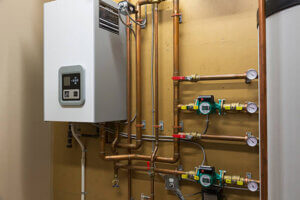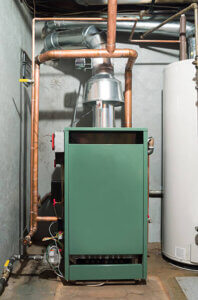
When making the decision to install a new furnace, your choices aren’t just about the make or model; it is also about getting the furnace sizing right. Most people believe that a larger furnace equates to better performance or improved efficiency. However, this is a common misconception, and bigger is not always better.
That is why, when you are planning to buy a new furnace for your home, being careful with furnace sizing is extremely important. Read on to find out more about the importance of precise furnace sizing and why bigger isn’t necessarily better.
For help selecting the right size furnace for your home and to request a free quote for your new HVAC system, contact the experts at Galmiche & Sons.
Why Bigger Isn’t Necessarily Better When Choosing the Right Size Furnace
Having a properly sized furnace is crucial for optimal comfort, efficiency, and cost-effectiveness. An oversized unit can cause a myriad of issues. It can cost you more money down the line as well.
Here are some of the reasons why bigger isn’t always better in the case of furnace sizing:
- Short Cycling: When a furnace is too large for its heating space, it tends to operate in short cycles, turning on and off frequently. This rapid cycling leads to not only inconsistent temperatures in your home but also places immense stress on the system. These frequent starts and stops cause excessive wear and tear on critical components, reducing the furnace’s overall efficiency and potentially shortening its lifespan.
- Inefficient Heating: The main goal of a furnace is to provide consistent and comfortable heating throughout your home. But when you make an error in furnace sizing and purchase an oversized unit, it can achieve this too quickly. This creates an imbalance in the heat distribution. This rapid heating may lead to inadequate air circulation, resulting in certain areas of your home being overly warm while others remain cooler. This inconsistency not only affects your comfort but also increases energy bills as the system works harder to regulate temperatures.
- Increased Energy Consumption: Surprisingly, an oversized furnace leads to higher energy consumption. The constant on-and-off cycling demands more energy than necessary, causing inefficiencies in the system. This increased energy consumption translates to higher utility bills over time, making an oversized furnace not only inefficient but also costly to operate.
- Compromised Comfort: Comfort is paramount in any home, and you should make it a priority while doing furnace sizing. A furnace that is too big can compromise your comfort. It struggles to maintain consistent temperatures, resulting in uncomfortable temperature variations across different areas of your home. You might notice hot spots in some rooms while others remain cooler, creating an unpleasant environment. On the other hand, an accurately sized furnace increases your comfort and helps you improve indoor air quality (link to Tips to Breathe Easy & Improve Indoor Air Quality page).
Understanding the Importance of Professional Furnace Sizing

Achieving the ideal furnace sizing requires professional assessment and calculations based on various factors:
- Home Size: Square footage, insulation, and layout impact the heating requirements.
- Climate: Regional climate influences the furnace’s heating capacity and needs.
- Ductwork Efficiency: Properly sized ducts ensure efficient heat distribution.
Contact Galmiche & Sons for Accurate Furnace Sizing in St. Louis
At Galmiche & Sons, we have offered top-notch HVAC services to people in St. Louis since 1950. With so much experience and familiarity with the climate and local requirements, we are your go-to professionals for accurate furnace sizing.
Our team will inspect your home and consider all the critical factors to recommend the correct furnace size. Contact our heating and air conditioning experts today to learn more!












